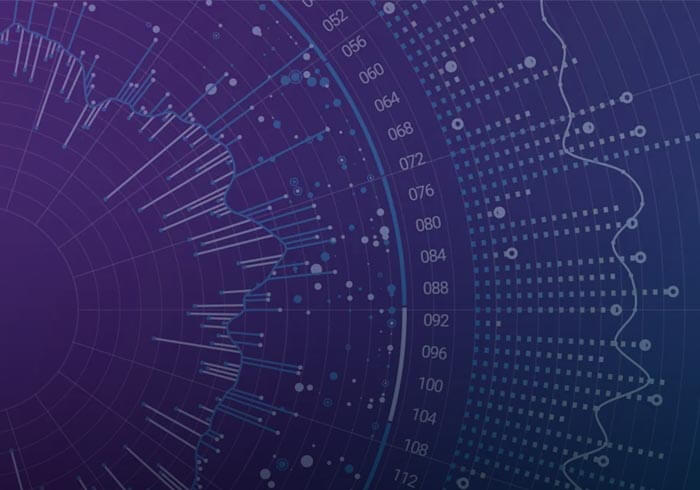Analytics Blog

Code of Ethics for Data Analysts: 8 Guidelines
“If you torture the data long enough, it will confess.” — Ronald Coase (1991 Nobel Prize in Economics) Click & Tweet!
This is a great time to be in data analytics. Finally, businesses are coming to the realization that data is power. Unfortunately, as we are learning from Cambridge Analytica and the roll-out of GDPR, data analytics ethics is all too often an afterthought. The power of data, can be used for nefarious purposes and this is raising the concern of ethical issues in data analysis.
We are in an era where lies spread faster than the truth, and we are seeing controversial and sometimes downright illegal use of sensitive data. Some individuals are taking a stand and even resigning from their job to avoid perpetuating misleading facts.
As data analysts we face new and greater challenges every day. We struggle with sometimes mind-bending data hurdles. This year has brought into focus a critical issue that impacts everyone from the Chief Data Officer to the analytics intern: ethics.
GDPR is a first step in tending to the data privacy concerns of consumers. GDPR is the European privacy law that went into effect in May 2018. GDPR is a law designed to give EU citizens control over their own data. The goal is also to give businesses and consumers in the EU a uniform set of privacy and data guidelines. This is just a small step.
Though organizations like the Digital Analytics Association lay out a code of ethics, there has been little to keep companies and analysts in check. In writing this post, I have discussed our code of ethics with several of my data analyst colleagues at Blast. To us, having a code of ethics for data analysts is fundamental and we encourage others to meet a professional standard. It is hard for the average analyst to impact how data privacy is handled on a corporate level. Nonetheless, there is an ethical standard we can hold ourselves to in data analysis and reporting.
Code of Ethics: 8 Guidelines for Data Analysts

Below are 8 guidelines for those gray areas we all encounter as data analysts.
#1: Protect Your Customer
Your customers are often handing over a lot of personal data. PII (personally identifiable information) should be safeguarded rigorously. The last thing you want is for your company to be the lead on the evening news for a data breach or misuse of data. As a rule of thumb, ask a friend not in the industry, would I want this piece of data about me made public? If the answer is “no,” proceed accordingly.
#2: Be the Bearer of Bad News
Don’t be afraid to be the bearer of bad news, it is easy to get carried away by the desire to show continuous progress or growth, even when none exists. You are not your numbers. A down quarter is not a reflection of you personally. If the data reflects bad news, tell them why.
#3: Don’t Torture the Data
Using data in a manner that is either careless or intentionally wrong is not professional. Anyone with an ounce of Excel knowledge can make a graph look better than it should. It is easy to create a phantom trend or overstate a minor upswing in the numbers. Don’t. Also keep in mind it is critical to own your data. Know the data backwards and forwards so you don’t unintentionally lie by given wrong information.
#4: Don’t Play Favorites
As much as we’d like there to always be that golden nugget of data in our analytics – sometimes it just isn’t there. Don’t manufacture or embellish a point that really belongs in the appendix of your PowerPoint.
#5: Don’t Lie
This seems like an obvious one. Nonetheless, I have seen many an analyst lie their way through a presentation. The hallmark of any great analyst is trust. If your numbers are wrong, if there’s a typo; own it. Address errors. Trust will pay dividends over the long haul. Your colleagues will remember your integrity long after they have forgotten that you had the wrong number on slide 12.
#6: Understand the Role of Data Quality
Our Director of Analytics Strategy, Aimee Bos, reminded me that data quality is a huge issue. Reporting bad data as truth is worse than reporting no data at all. Don’t blindly believe what your analytics tool tells you. Understand the fundamentals of what goes into those numbers
#7: Am I Improving the Business?
Do you ask yourself, “Am I improving this business as well as our customers?” The value to the end customer and our business must always be present in our thinking. Make it the rule not the exception that the customers own their data and it is safe in your hands.
#8: Data Governance is Critical
In speaking with Blast’s analytics veteran, Halee Kotara, we discussed the multiple times data governance has played a role in our work. We agree there is a need to create order and democratize the data. Nonetheless, with less control can equal more ignorance. Have good documentation and take the time to train your internal and external clients.
3 Areas of Focus for an Ethical Analyst
These code of ethics guidelines for being an ethical analyst are straightforward. To help further guide you, I have three key areas every data analyst should focus on:
- Test and learn: As an organization, the ability to implement test and learn gives you the opportunity to experiment and iterate. This also gives you the freedom to makes mistakes and improve. This reduces potential errors down the road.
- Impact: Your role as a data analyst is to make an impact on the bottom line for your company. You must act as the source of truth for your organization. Steer people towards data-based decision making and away from those “gut feelings.”
- Accountability and Transparency: Harry Truman had a sign on his desk that said, “The buck stops here.” In data, the same truth applies. It is easy to get overloaded by strategy, and maturity models, and search algorithm changes, and tool upgrades and Monday morning reports. Be accountable for your data and be transparent. You can be an analyst on your first day of your job or be an old hand at analytics. Owning your data is table stakes in the data analytics industry.
If sometime in the future, you don’t recall these specific data analyst code of ethics guidelines:
- Always hold yourself to the highest standard you can achieve.
- Be smart and test your limits.
- Be passionate.
Most of all: Dream big, kick ass, yet be humble








